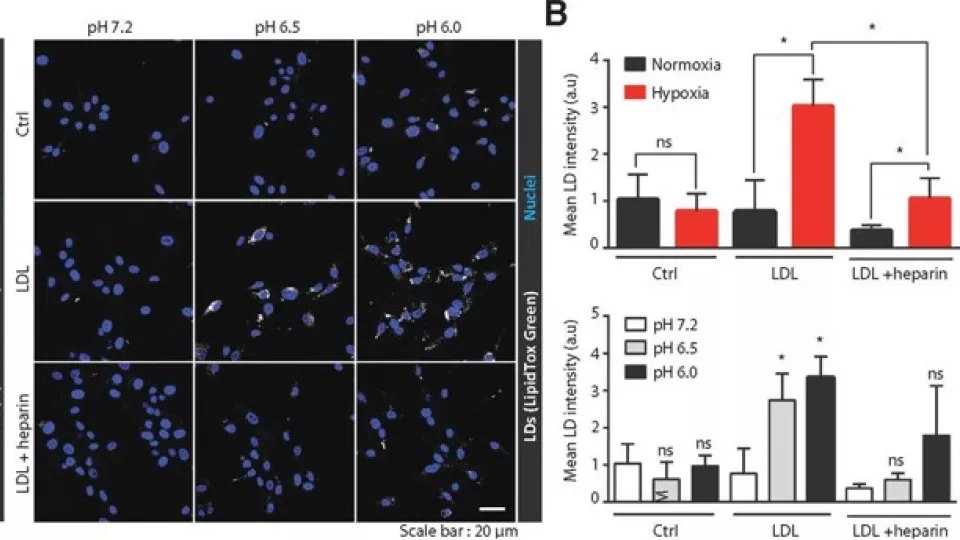We provide evidence of a novel role of heparan sulfate proteoglycans (HSPG) in the adaptive response of tumor cells to hypoxia and acidosis through increased internalization of lipoproteins, resulting in a lipid-storing phenotype and enhanced tumor-forming capacity. Patient glioblastoma tumors and cells under hypoxic and acidic stress acquired a lipid droplet (LD)-loaded phenotype, and showed an increased recruitment of all major lipoproteins, HDL, LDL, and VLDL. Stress-induced LD accumulation was associated with increased spheroid-forming capacity during reoxygenation in vitro and lung metastatic potential in vivo.
Cancer cells adapt to stress through increased uptake of lipoproteins

In this study, we provide new insight into how cancer cells adapt to stress factors present within the tumor microenvironment through increased uptake of lipoproteins.

